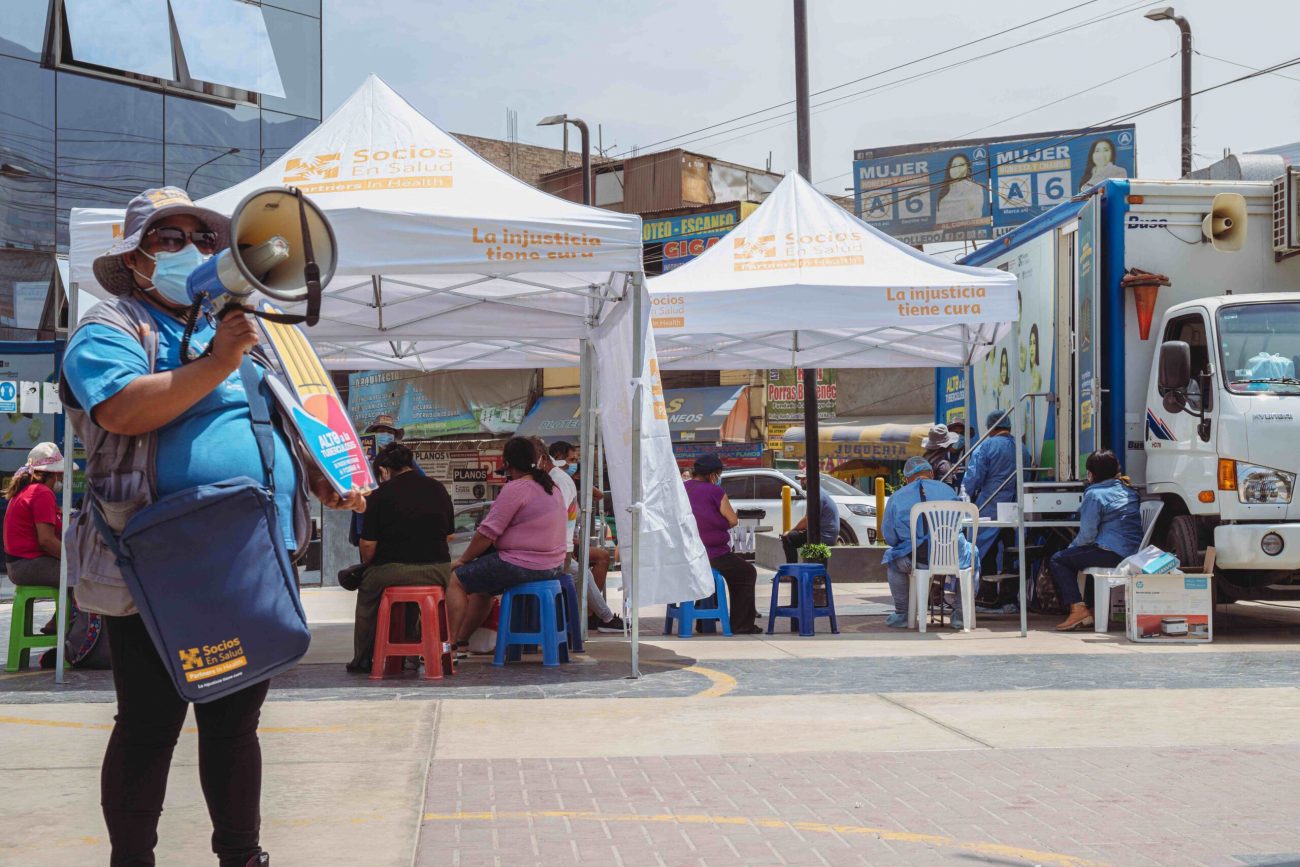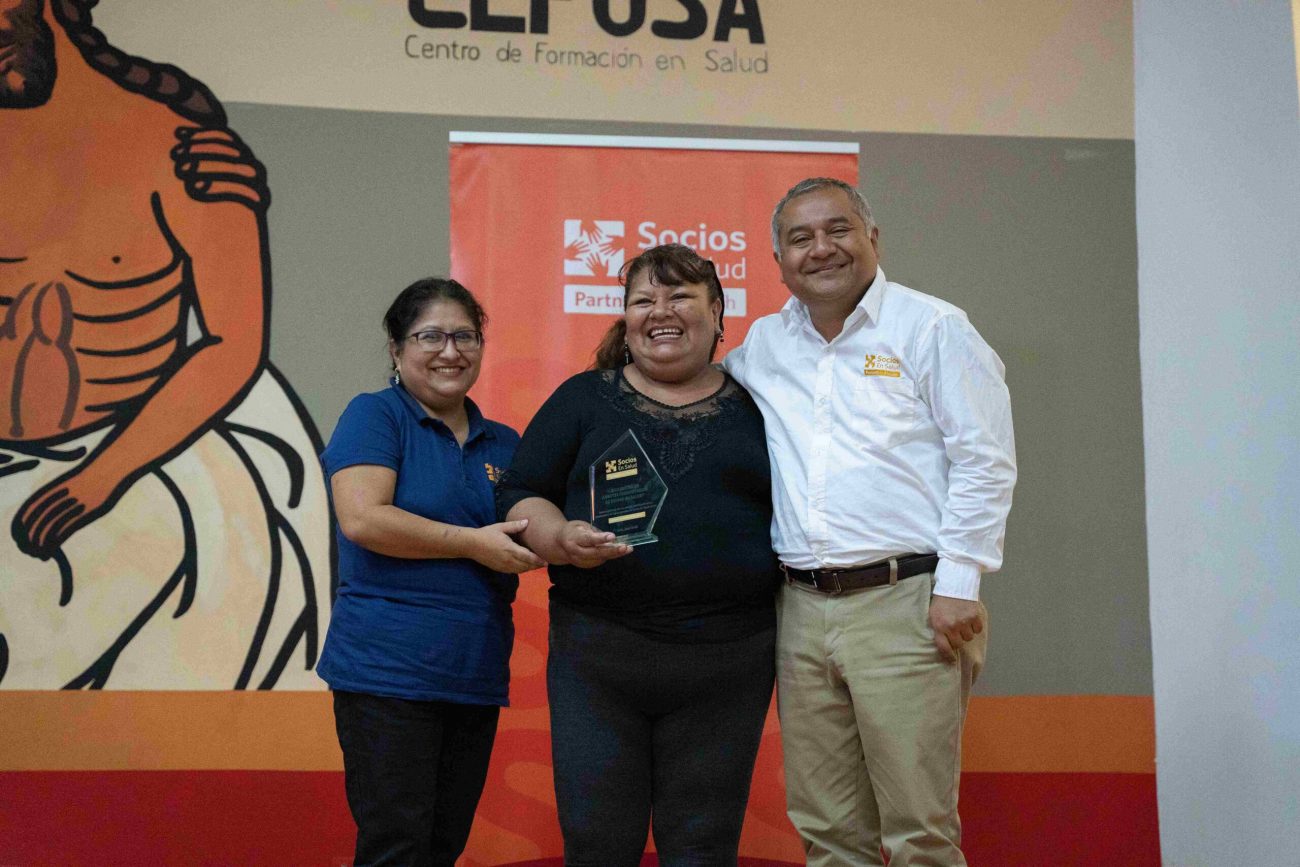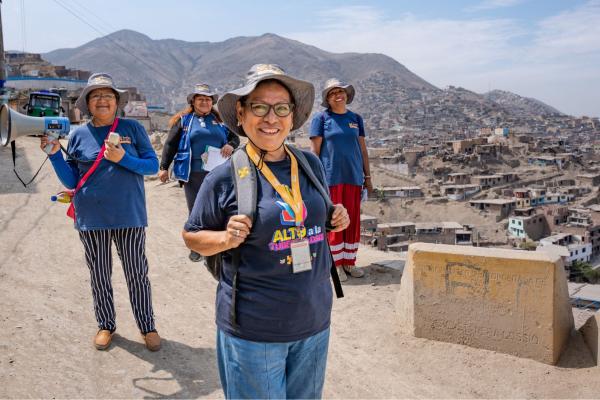There is a double challenge for women living in Peru’s most vulnerable communities.
On the one hand, they must make their way in a society that is still sexist in many respects. According to ENARES, 52.7% of Peruvians believe that women should fulfill their role as mothers and wives first before their own dreams.
To this is added a series of difficulties typical of impoverished areas, such as lack of drinking water and sewage services, overcrowding problems, among others. In Lima alone, according to Sunass, there are more than 635,000 people who do not have access to drinking water, which causes health risks such as parasitosis and chronic diarrhea.
Delia Lunasco has a lot to say about these problems. In her role as a community health agent (CHA) of Socios En Salud (SES), she is not only dedicated to promoting healthy practices and accompanying patients in their recovery, but has also become a referent of female empowerment for women in her community.
In 2022, SES trained and engaged 427 ACS through 19 health projects, of which 391 (92%) were women.
A considerable number that reflects the active role taken by women of all ages in looking after the well-being of their communities, through a range of tasks such as providing health education, promoting healthy practices and disease prevention, providing basic health care services, making home visits, identifying health problems and collaborating with other health professionals.

An unwavering commitment to the community
Delia Lunasco (54) has been an SES community health agent for more than 10 years, but her commitment to the health of her community, in the El Progreso human settlement in Carabayllo, began more than 20 years ago, when she was appointed health promoter.
In Lima, the vast majority of human settlements are on the slopes of hills on the outskirts of the city, where more than half of the families do not have land titles or formal access to basic services, such as electricity, drinking water or sewage.
When Lunasco began to get involved as a leader of the neighborhood committee in his jurisdiction to address the problems that afflicted them, his interest in the health of his community was also born.
“In the hills there is always decay and diseases that affect especially the children,” he explains.
Lunasco did not pursue a professional career, although she says she would have liked to study to become a nurse after finishing high school. Her story is that of many women living in vulnerable areas of Peru: her limited finances and being a mother of six children made her sort out her priorities and put aside some dreams to devote herself to her home.
A survey by the Instituto de Estudios Peruanos (IEP) estimates that in 82% of Peruvian households women do most of the housework, spending twice as many hours a week as men on tasks such as cooking, washing or cleaning.
Having no higher education was not an obstacle for Lunasco, through SES training, to become a community agent with extensive knowledge on health and prevention issues; however, this role was not always well regarded at home, especially by her husband.
She still remembers that when she joined SES and started leaving her home in the mornings and afternoons to visit patients or go to her trainings, one day her husband suggested that she better work for him.
To this day, Lunasco doesn’t forget his response.
“And what am I going to do sitting down? I’m not going to produce anything,” she told her husband, who was a bus driver and had offered to work as her co-pilot. “Instead, going out [from home] I’m giving help, because there are patients who can’t get up and we have to go searching.”
Lunasco is aware that as a community health agent she has not only left a positive mark on the lives of the people she has met through the community search, care and accompaniment activities she performs. She has also become the bearer of a message of empowerment for the women in her community.
“I tell all of them that we are unique, that we should go forward and not stay at home. We are women leaders, empowered,” she emphasizes.

During the I Encuentro de Agentes Comunitarios de Salud, Socios En Salud recognized Delia Lunasco for her exceptional work in the Tuberculosis Program and for the benefit of her community.
Facing Challenges
Last June, Lunasco was recognized by SES as part of Community Health Agent Day, for her tireless work in the Tuberculosis Program and her years of service to the community.
For her, this recognition is a reflection of her commitment to the health of the most vulnerable people, and also the value of a job whose impact is unknown to many people, even within the health sector itself.
On occasion, Lunasco has witnessed how in some health centers they downplay the importance of the work of community agents, despite the fact that they often have the strongest links and most frequent contact with patients.
She also believes that machismo continues to be a problem in the health sector, making women’s empowerment and education increasingly crucial.
Thus, trainings that strengthen the skills of community agents play an important role in all of this, insofar as they contribute to their guiding and educating role vis-à-vis the people in their communities, which significantly empowers them.
On her journey, Delia Lunasco has not only succeeded in having young women become health promoters at the El Progreso Health Center and SES community agents. She has also overcome obstacles such as the one initially posed by her husband, who after witnessing the value of her work for her community, became involved and supported her unconditionally, as did her entire family.
“We want to emerge and move forward”.
Read also this article on the PIH website.
.
